- Home
- Duncan James
Take Me Home Page 2
Take Me Home Read online
Page 2
***
It seemed a cruel thing to say, or even to think it, but nobody seemed to want Tom.
The Police had been very good. They had put notices up everywhere, checked with all the other police forces, sent pictures to the papers, and generally done everything they could to discover who might have lost the boy and where he might have come from. They had even checked his dental records, although that wasn’t a lot of use, as he had perfect teeth and had obviously never been to a dentist in his life. And there were no labels on his clothes, either. But the harsh fact was that no family anywhere in the country had reported a missing person who fitted the description of Tom, and there seemed to be no official record of him either, although since he didn’t remember how old he was, they had needed to guess at his age.
While all this was going on, the Social Services people had swung into action, ready to take Tom into care until his real family had been found. It was routine. The sort of thing they did all the time. But for some reason which none of the officials in the office could quite explain, Tom’s interview with them didn’t go quite the way these things normally did. When he walked in to their office, it was automatically assumed that he would walk out and go straight into a care home, and yet he had somehow managed to persuade them that he should return to the farm and live with the Drapers. They couldn’t remember that happening before, although they agreed afterwards that it was probably all right. They knew where he was, the Drapers were more than happy for the boy to stay there a bit longer, and it was saving the taxpayer money. It was certainly what Tom wanted, and of course that was important. That’s really what their job was all about, after all. So he stayed with the Drapers while the search for his family went on.
The Drapers lived a short way from Stockbridge, at Goodworth Clatford, an even smaller village on the River Anton, rather than the River Test. The water meadows of the valley were ideal for sheep farming, with their lush growth and easy grazing, and Andrew was able to work his flock down the length of the Anton almost until it joined the Test at Fullerton, by The Mayfly pub.
Tom had fitted in very well on the farm. He was no trouble around the house, and he got on with everyone, and especially with the animals. The dogs loved him, and even the sheep ambled over to him when he appeared, as if he was going to feed them all some tit-bit or other. Which, of course, he never did. But Tom enjoyed working round the farm, and Andrew found the extra pair of hands a great help.
But there was definitely something odd about the boy.
He had gone to the local school, where the headmaster had pronounced him one of his brightest pupils, who was very quick to learn. “You only ever need to tell him anything once,” he had said.
The French mistress was astonished to find that he spoke her language fluently, although he had no recollection of ever having been to France, or having lessons before.
He was good at Maths, understood computers, never had a day off ill, and took a keen interest in astronomy. He had joined the school’s astronomy club, and frequently went back to school after dark to use their telescope. The planets were a particular interest, and he spent ages looking at Jupiter when it was visible above the horizon.
On the farm, the two small black Labradors had certainly regained their old skills at catching rabbits, especially when Tom went with them. It was as if he was showing them were to look, and how to stalk them. And the old sheepdog, Beth, which Andrew had seriously considered replacing, took on a new lease of life, and suddenly seemed able to get the sheep to do anything she wanted, and without fuss. But only if Tom was there. Andrew couldn’t make out whether it was Tom’s influence over the dog, or over the sheep, but certainly the boy appeared to be able take charge of events in some mysterious way.
And he was good with his hands, too, seemingly able to fix almost anything that went wrong whether it was the old computer in the dusty office, or the Landrover.
One evening, after a long day in the fields, when the three of them were sitting in the kitchen after a hearty meal, Tom said, “You know, I really can’t stay here with you for ever, can I.”
“You can stay here for as long as you want,” replied Mary. “We’ve grown very fond of you, y’know, and it’s been nice having you about the place for the last couple of years. It’s just a pity you’re not with your real family, that’s all.”
“You are my real family,” said Tom, “since I don’t know any other. And I don’t want to leave you, but I really think I should, that’s all.”
“As Mary said, you can stay here for ever, so far as we are concerned. And you like it here well enough, don’t you?” asked Andrew.
“I love it here. I love the countryside, the farm, the animals, the school, the people in the village, the fishing – everything. And more than anything, I love both of you. You are my real parents,” said Tom.
“We feel the same about you, Tom,” said Andrew. “You’re a funny chap, though, and no mistake. You seem to know so much, and be so good at everything, without ever trying. But if you’re really happy here, why ever think about leaving? Where would you go?”
“I just feel I should go, that’s all,” replied the boy. “You see, I know that I have special powers which other people don’t have, and that I can do things other people can’t do. I’ve done my best to fit in, without making it too obvious, but it’s getting more and more difficult for me, and for wonderful people like you. I know you’ve noticed. So I just feel the time has come for me to move on again.”
“You see,” said Andrew, turning to his wife, “I told you the lad was special.”
“So how do you do these extraordinary things,” asked Mary.
“Well,” said Tom, “the human brain is like a computer in many ways. It stores information. The difference is that information in a computer can be shared, whereas what’s in your brain is just yours. Nobody else can get at it. Except that I can. I can download information from other people the same as people can download information from computers. That’s how I learnt French – I just downloaded everything the French mistress knew about it, and since she is French, I spoke the language immediately as if I was French as well. That’s how I knew about you keeping sheep, and about the rabbits.”
The farmer and his wife sat in amazement, spellbound.
“If you could teach people to do that, you’d make a fortune,” said Andrew.
“But I can’t teach it,” replied Tom. “If I could, all the crooks in the world would want the skill, and mis-use it. I only use it for good, not for evil, and I only use it to learn. But it allows me to communicate with anything else that has a brain. Not just schoolteachers, either; your dogs and the sheep, too. That’s how I can get butterflies to settle on my hand, and why the Kingfisher landed on my fishing rod the other day.”
“I’ve certainly never seen that before,” commented Andrew. “I knew there was something strange about you, Tom. I said so, didn’t I Mary?”
“But why are you telling us all this,” asked Mary.
“Because I trust you, and I thought you should know after all this time,” replied the boy. “And if you did try to explain to anyone else, they wouldn’t believe you anyway. But I am sure the time has come when I must move on again, before too many people become curious about my behaviour. I hope you understand that. One day, though, I’d like to come back here and teach others what I can do - if they let me. ”
Andrew was going to ask, “Who are ‘they’?” but thought better of it.
***
They were in Stockbridge shopping when it happened. They had just delivered a few brace of rabbits to Will, the butcher. Tom looked down the High Street, and pointed to the trees and hills, which rose at the end of the High Street.
“You know,” he said, “if was dark, you could see Jupiter from here, just above those hills on the horizon, to the right of the trees.�
�
For some reason, they turned to look where the boy was pointing.
“Take me home,” he said.
They thought he was talking to them, but when they turned back, he had gone. The dogs in the back of the Landrover went mad, barking and jumping about, while Andrew and Mary looked about them. But there was no sign of Tom.
Suddenly the dogs were quiet. Suddenly, too, the farmer and his wife knew there was no point in searching for the boy. He had gone in the same way that he had arrived.
For a few days, the Drapers were quite at a loss about what to do for the best. They couldn’t very well just send a sick-note to the boy’s headmaster, could they? But what could they say? There was much head scratching by the police, too, who were now being asked to find a boy who they had been unable to prove existed in the first place. And the officials at the social services office all tut-tutted and said, “I told you so” to one another. This would never have happened if they had done what they always do, and placed the boy into care. They should never have let him talk them out of their normal practice. They would make sure that wouldn’t happen again.
***
Next day, there was a small item in the Daily Telegraph, in the ‘news in brief’ column. NASA scientists had announced that a satellite probe, which they had lost contact with shortly after its launch some two years before, had suddenly come to life again. As they had planned, it was orbiting Europa, one of Jupiter’s moons. It was thought that there was a hidden ocean of liquid water beneath the moon’s surface, and the satellite had been sent to establish whether or not it was possible for any form of life to be supported there.
Andrew and Mary Draper and their dogs already knew the answer to that.
***
ABOUT THE AUTHOR
Duncan James was an RAF pilot before eventually reaching the higher levels of the British Civil Service, in a career that included top-level posts at home and abroad with the Defence Ministry, and work with the Metropolitan Police at Scotland Yard.
A life-long and compulsive writer, he has produced everything from Government statements, Ministerial briefing papers, media announcements and reference books. As a public affairs consultant and freelance author, he was a prolific writer of magazine articles on a wide variety of subjects, as well as short stories and three novels.

 JUNK and other short stories
JUNK and other short stories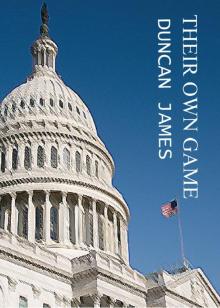 Their Own Game
Their Own Game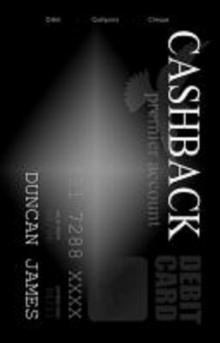 Cashback
Cashback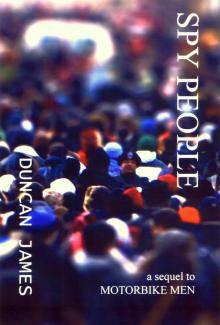 Spy People
Spy People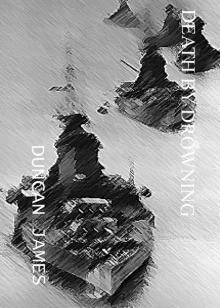 Death By Drowning
Death By Drowning Take Me Home
Take Me Home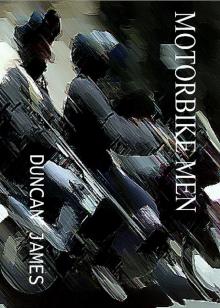 Motorbike Men
Motorbike Men